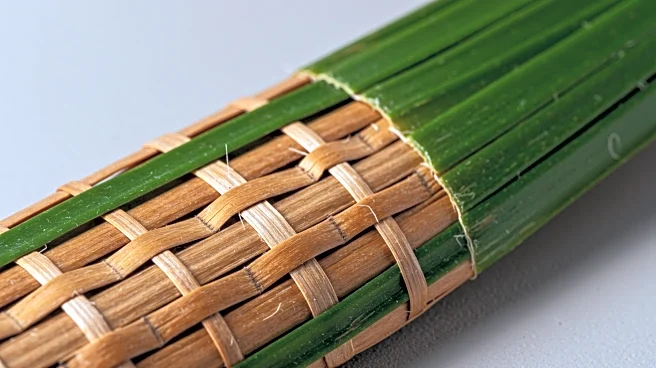What's Happening?
Research into pineapple leaf fibre (PALF)-reinforced biocomposites has demonstrated significant improvements in mechanical properties, including tensile strength and elongation at break. The study followed ASTM standards for specimen preparation and utilized an Electronic Tensometer for testing. The results indicate a well-bonded fiber-matrix interface, contributing to consistent load transfer and uniform mechanical behavior. The high carbon content of PALF composites enhances their structural strength, making them suitable for various applications requiring durability and eco-friendliness.
Why It's Important?
The development of PALF-reinforced biocomposites offers a sustainable alternative to traditional materials, aligning with the growing demand for eco-friendly solutions in industries such as aerospace, automotive, and biomedical equipment. The high carbon content and improved mechanical properties make these composites ideal for applications prioritizing strength and lightness. The research highlights the potential of natural fibers in advancing sustainable material science, contributing to reduced environmental impact and promoting circular economy practices.
Beyond the Headlines
The study underscores the importance of fiber treatment, matrix compatibility, and fiber orientation in determining the mechanical properties of biocomposites. The use of compatibilizers enhances interfacial bonding, preventing premature failure due to fiber pull-out. The findings suggest further exploration into optimizing fiber treatments and resin formulations to develop even stronger, more versatile biocomposites.









